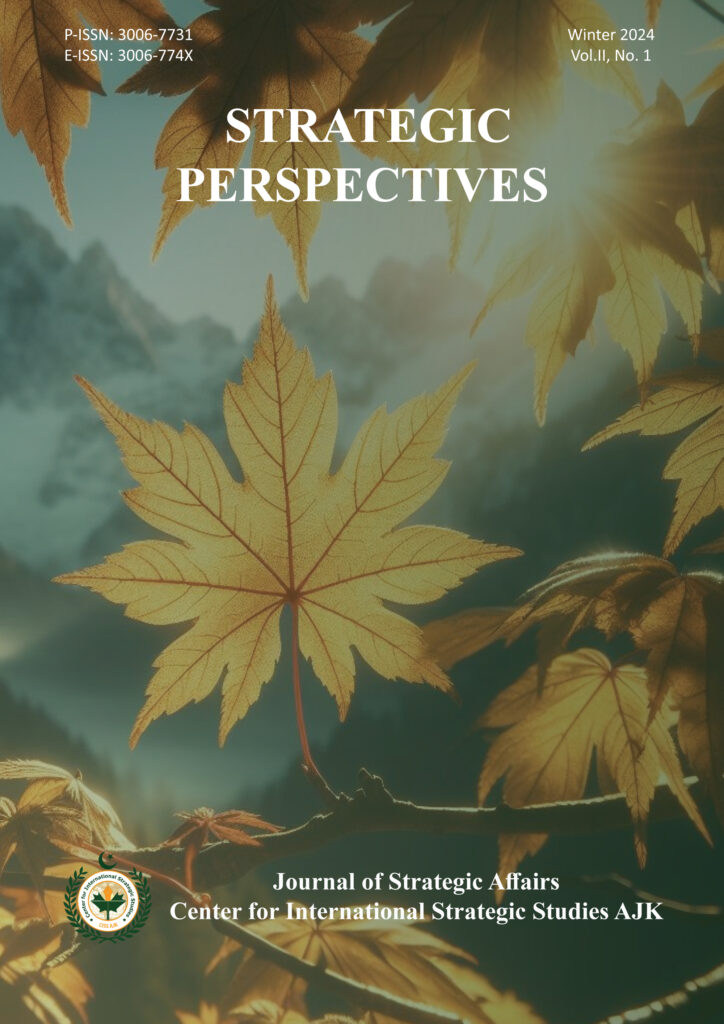Vol. II No. 1 (2024): Strategic Perspectives, Winter 2024
Abrogation of Article 370 and 35-A: Policy Options for Pakistan
Asad Ullah Khan

Published December 31, 2024
Abstract
With far-reaching implications, August 5, 2019, marked a pivotal moment in South Asia’s geopolitics, diplomacy, regional peace, and human rights. India’s decision to abrogate Article 370 and 35-A in Indian Illegally Occupied Jammu and Kashmir (IIOJK) profoundly impacted the dynamics of the IIOJK and new subtleties have appeared after the recent elections of IIOJK assembly. This study addresses India’s abrogation of Article 370(A) and the response of the international community, implications for regional stability, and explores the policy options for Pakistan particularly after the recent Jammu and Kashmir Assembly elections. Over the past six years, India has implemented new domicile laws, land laws, and media policies within the occupied territory, reshaping the demographic landscape. These actions have stirred controversy and heightened tensions by contravening various United Nations Resolutions. This article closely examines the ongoing conflict in the context of frozen conflict theory. It touches upon the national and international implications along with insightful perspectives on the potential policy options to address the challenges posed by these developments. It discusses the situation after the recent election in IIOJK Assembly. This study concludes that the recent IIOJK elections have created an opportunity for Pakistan to reshape its policy. By leveraging soft power and amplifying Kashmiri voices, Pakistan can pursue a peaceful resolution aligned with their aspirations.
Key Words
Jammu and Kashmir, Article 370, 35A, Abrogation of Article, India, Pakistan, Policy Options, Conflict of Jammu and Kashmir
